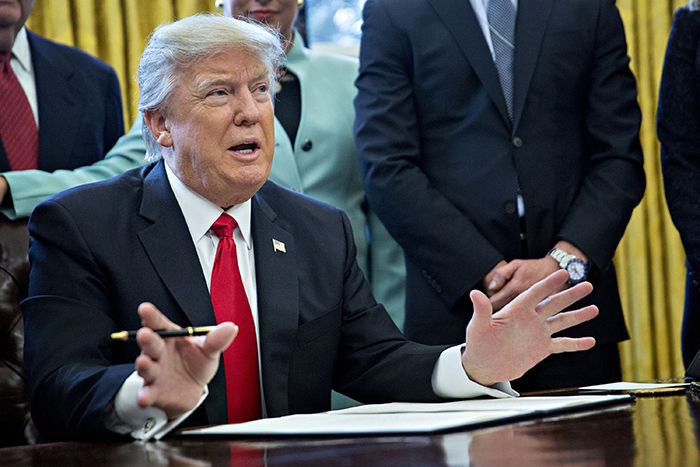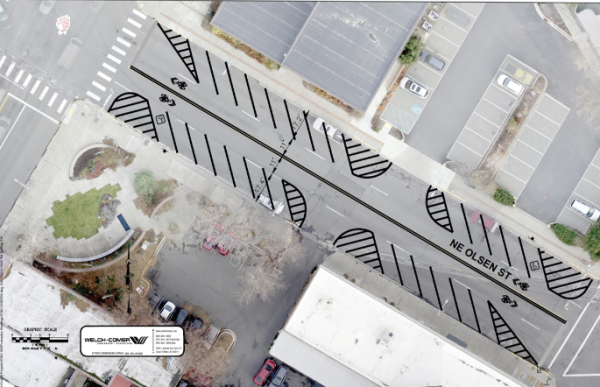Ban on seven countries comes from Visa Waiver Program of 2015 act
President Donald Trump signing an executive order in the Oval Office Jan. 30. Trump’s executive order never specifically names the seven Middle Eastern countries from which it bans immigrants.
February 6, 2017
The seven predominantly Muslim countries included in President Donald Trump’s executive order banning immigration are not specifically named in the order itself.
They were actually decided through updates to the 2015 Visa Waiver Program Improvement and Terrorist Travel Prevention Act, according to a Jan. 21, 2016 White House news release. The January change made it so that any non-citizens who have traveled to or been present in Iran, Iraq, Sudan or Syria on or after March 1, 2011 were no longer allowed to enter the U.S.
According to a Feb. 18, 2016 White House news release, the Department of Homeland Security announced it would be adding Libya, Somalia and Yemen as countries of concern.
The executive order banned immigrant and nonimmigrant entry into these seven countries for a 90-day period.
Trump’s executive order references the Sept. 11, 2001, attack on the Twin Towers as the most apparent example of a terrorist attack in the U.S., but none of the nationalities of those attackers made it onto the list of banned countries. Their nationalities included Egyptian, Saudi, Lebanese and United Arab Emirates.
Trump also stated in the executive order that the Secretary of State and the Secretary of the Department of Homeland Security can give the president additional countries to be considered for the list at any time.
In a separate section of the order, Trump stated that the entry of Syrian refugees would cause harm to the interests of the U.S. He has therefore specifically suspended Syrian refugees from entering into the U.S.
Trump also ordered that the secretary of state suspend the U.S. Refugee Admissions Program (USRAP) for nationals from all countries during a 120-day period.
When the USRAP resumes operation, the Secretary of Homeland Security is to prioritize refugee claims made by individuals who have been persecuted for their religion, provided that their religion is the minority within their country, according to the order.
Both secretaries are to recommend legislation to the president that might ease that process.





















